Improving biodiversity in coffee landscapes in Vietnam
4C, in cooperation with the Lake Constance Foundation, Agriculture and Forestry Research & Development Center for Mountainous Region (ADC), Vinh Hiep Gia Lai Co., Ltd and Fundación Humedales, has started a joint project to improve biodiversity in coffee landscapes in Vietnam.

Project title: Improving biodiversity in coffee landscapes in Vietnam
Project objective: The overall aim of the project is to improve biodiversity in coffee production by setting up and implementing biodiversity action plans on a landscape level, using the Biodiversity Performance Tool (BPT) adapted to the local context of the region in which it is applied.
Project Management: 4C Services GmbH
Project financed by: 4C Services GmbH
Advising partners: Lake Constance Foundation and Fundación Humedales
Implementing partners: Vinh Hiep Co. Ltd. and Agriculture and Forestry Research & Development Center for Mountainous Region (ADC)
Project period: 01/2021 – 05/2022
Key results
updated August 2022
Significant changes in coffee farms after 1 year
- Application of good management and farming practices
- Intercropping with fruit trees or other perennial crops, breaking monoculture system
- Increased vegetative layers to cover soil surface
- Maintaining and planting flowers/shrubs to protect beneficial insects, pollinators and bringing nicer view on the coffee farms
- Shade tree maintenance and growing more shade trees
- Other good farming practices widely implemented
- Not only coffee farm but surrounding area is also protected
- Awareness Raising and Capacity Building:
- Practical skills to establish the micro-ecosystem of coffee farms, eliminate bad practices and risks of decreasing biodiversity performance
- Integrated Pest Management (IPM) and Weed Management (IWM), incorporation of plants that attract beneficial insects and pollinators
- Promotion of shade trees and intercropping
Awareness raising and Capacity building activities have been conducted by local partners to equip farmers with practical skills on how to identify micro ecosystem of their coffee farms, recognize bad practices and risks having negative affects on biodiversity. Farmers are guided on Integrated Pest Management (IPM) and Weed Management (WM) where a large number of rush/flowers good for beneficial insects and pollinators are planted. In addition, field support provided has helped farmers to be confident in replant their coffee farms where shade trees and intercropping is significantly promoted.
- Potential impacts:
- Session of biodiversity is integrated in the training on 4C requirements to all farmers who joined Vinh Hiep’s sustainable coffee production chain. Key focus is what is the importance of biodiversity, how farming practices can protect biodiversity and coffee trees are more resilient to climate change?
- Adjacent farms are invited to the training of piloted farmers, and additional 1000 farmers are the potential target of expansion of the Vinh Hiep’s activity, to form sub-groups of farmers mutually supporting each other.
Further potential impacts at larger scales through the continuous implementation of improvement measures by farmers, and replication of good practices by the local partner, Vinh Hiep company, to their farmers.
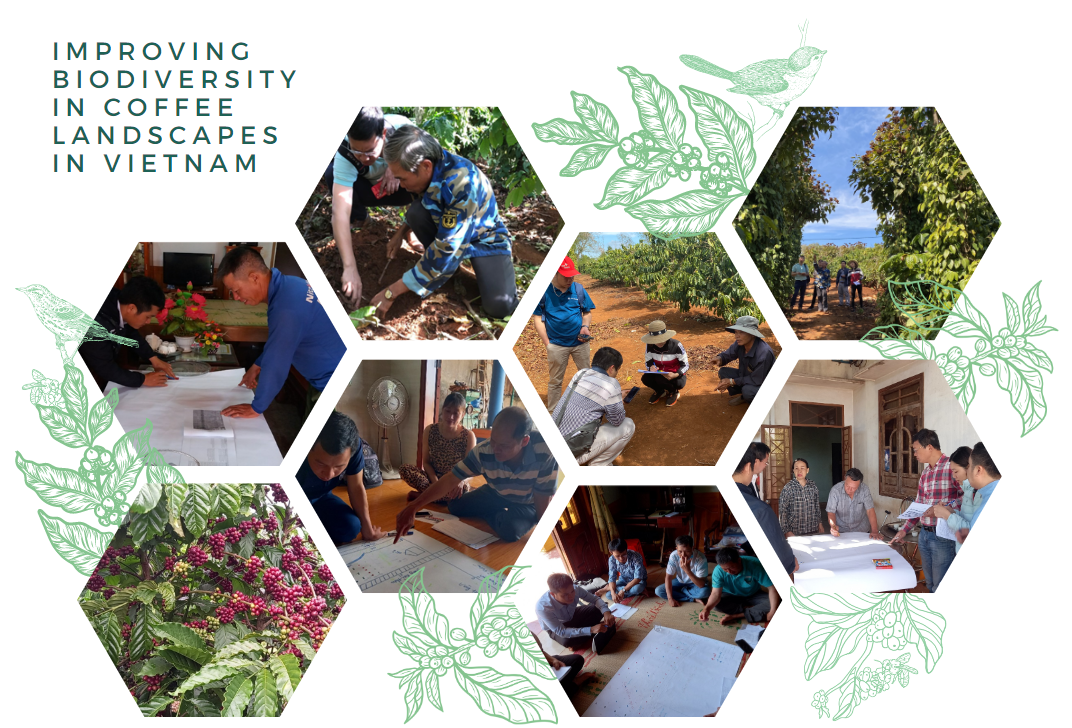
PROJECT DETAILS
Project background
According to a report published by the Intergovernmental Science-Policy Platform on Biodiversity and Ecosystem Services (IPBES) in May 2019, nature is declining globally at rates unprecedented in human history. Up to one million plant and animal species face extinction due to increasing deforestation rates, climate change, pollution and other human activities. The report showcases, that the loss of biodiversity is one of the biggest challenges of our time. Intensive agriculture is considered as one of the main drivers of the destruction of ecosystems, overexploitation of natural resources and contamination. Looking into coffee production, it is grown in some of the world’s biodiversity “hotspots”, which are areas of high vulnerability and biological importance.
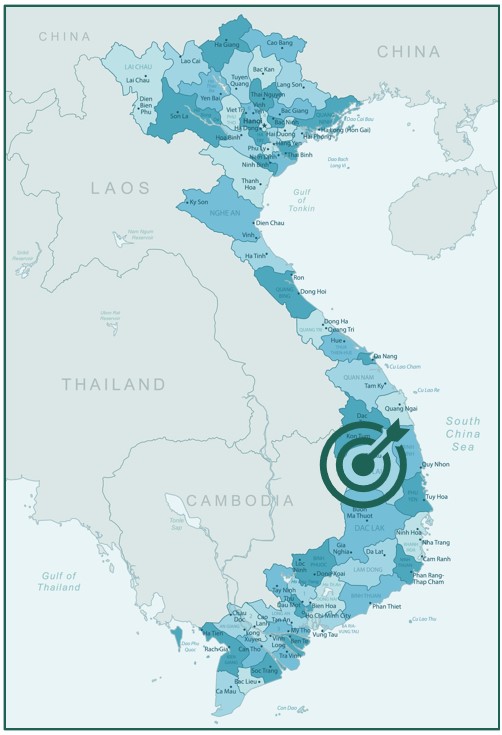
Vietnam is the second-largest coffee exporter after Brazil, having expanded its area for Robusta coffee production from 15,000 ha in the mid-1980s to 600,000 ha in 2017/2018. The environmental footprint associated with this expansion and the intensification of Robusta coffee production is very significant. Especially the Central Highland region is marked by intensive monoculture plantations and intensive irrigation and fertilizer use which resulted in problems of soil degradation and pollution, destruction of groundwater, and pest infestation. Approximately 15% of Vietnam’s species are considered endangered and much of Vietnam’s biodiversity loss is linked to the loss of natural forest cover.
Improving biodiversity performance on coffee farms not only serves nature protection, but is also the basis for sustainable, successful, and climate change resilient coffee production. Awareness of agriculture-driven biodiversity loss is increasing in European markets, and companies are increasingly committing to more action on biodiversity. However, many projects and approaches are focused on singular topics, such as pesticide use or shade trees. What is missing is a holistic approach to biodiversity, accompanied by a pragmatic approach of demonstrating progress, which can be efficiently monitored and transparently communicated along the supply chain.
Project measures
The Biodiversity Performance Tool (BPT) developed by the EU LIFE Initiative “Food & Biodiversity” is a tool to fill this gap. It is a practical instrument to realize a baseline evaluation of the situation of biodiversity on the farm, makes visible strengths and weaknesses using a classification system of thresholds, and generates a Biodiversity Action Plan based on the baseline evaluation for two lines of action such as the creation of potential for biodiversity and the reduction of negative impacts on biodiversity. It supports farmers or farm group managers to decide which measures to implement to improve biodiversity on the ground and allows transparent communication on the actual progress made.
The BPT has been adopted to the Vietnamese context and applied on different 4C certified farms to evaluate the biodiversity situation and set up and implement biodiversity action plans.
- Phase – Adaptation of the BPT to the Vietnamese context and testing of its implementation
- Phase – Upscaling through the elaboration and implementation of Biodiversity Action Plan(s) (BAP) on a landscape level
- Phase – Support of market access
- Phase – Dissemination and anchoring of results
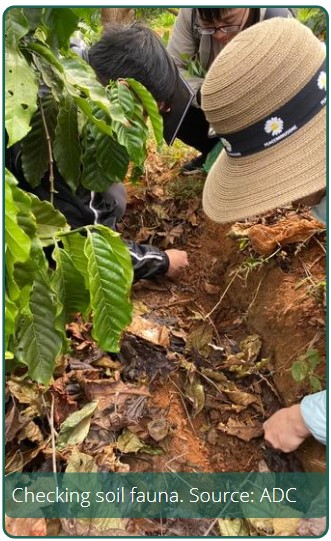 ADC has adopted the BPT to the Vietnamese context and used it during their farm visits in January 2021 to conduct a baseline evaluation and identify the potential for biodiversity improvement. Currently, the selected biodiversity improvement measures are being implemented and monitored. An evaluation is foreseen to be conducted by the end of this year, and the BPT will be further adjusted to be appropriable to be used on a landscape level in Vietnam coffee cultivation. “We are proud to be a partner in this project, involving some of our farms to test the Biodiversity Performance Tool and to learn about possibilities to improve the biodiversity situation within our supplying farms, with the aim to disseminate this knowledge throughout the region for a wider positive impact on biodiversity”, confirms Certification department at Vinh Hiep Gia Lai Co., Ltd. The BPT will provide coffee farmers in Vietnam with a practicable tool to support them in their biodiversity enhancement endeavors.
ADC has adopted the BPT to the Vietnamese context and used it during their farm visits in January 2021 to conduct a baseline evaluation and identify the potential for biodiversity improvement. Currently, the selected biodiversity improvement measures are being implemented and monitored. An evaluation is foreseen to be conducted by the end of this year, and the BPT will be further adjusted to be appropriable to be used on a landscape level in Vietnam coffee cultivation. “We are proud to be a partner in this project, involving some of our farms to test the Biodiversity Performance Tool and to learn about possibilities to improve the biodiversity situation within our supplying farms, with the aim to disseminate this knowledge throughout the region for a wider positive impact on biodiversity”, confirms Certification department at Vinh Hiep Gia Lai Co., Ltd. The BPT will provide coffee farmers in Vietnam with a practicable tool to support them in their biodiversity enhancement endeavors.
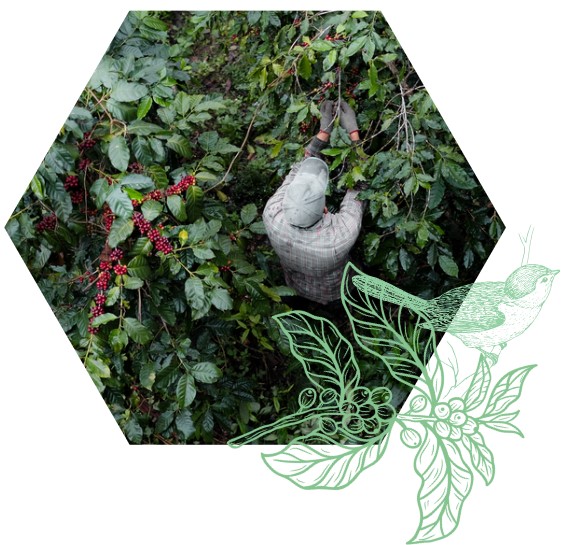 Expected project results
Expected project results
- Invaluable benefits for farmers in terms of training, acquiring support and know-how on developing biodiversity action plans and in-kind support for implementing improvement measures
- Improved coffee farming practices that support conservation of biodiversity and lead to better productivity and greater profitability for farmers
- More biodiverse coffee regions due to the implementation of biodiversity-friendly coffee production on various farms
- Increased awareness at local, regional, and national level on the benefits of biodiversity conservation within coffee plantations
- Improved market links between coffee farmers producing biodiversity-friendly coffee and responsible markets in Europe
Biodiversity is essential for the future of coffee cultivation. The 4C Code of Conduct includes effective biodiversity criteria. Our joint project to adopt the BPT to the Vietnamese coffee production supports farmers in the elaboration of their action plans. With these activities, the 4C standard creates acceptance and capacities.
Marion Hammerl, President of Global Nature Fund and Director of the Lake Constance Foundation
We are happy to move this project forward with such experienced partners in the area of biodiversity protection. From this project, we want to learn more about how we as 4C can further contribute to more biodiversity in coffee cultivation.
Dr. Norbert Schmitz, Managing Director of 4C Services
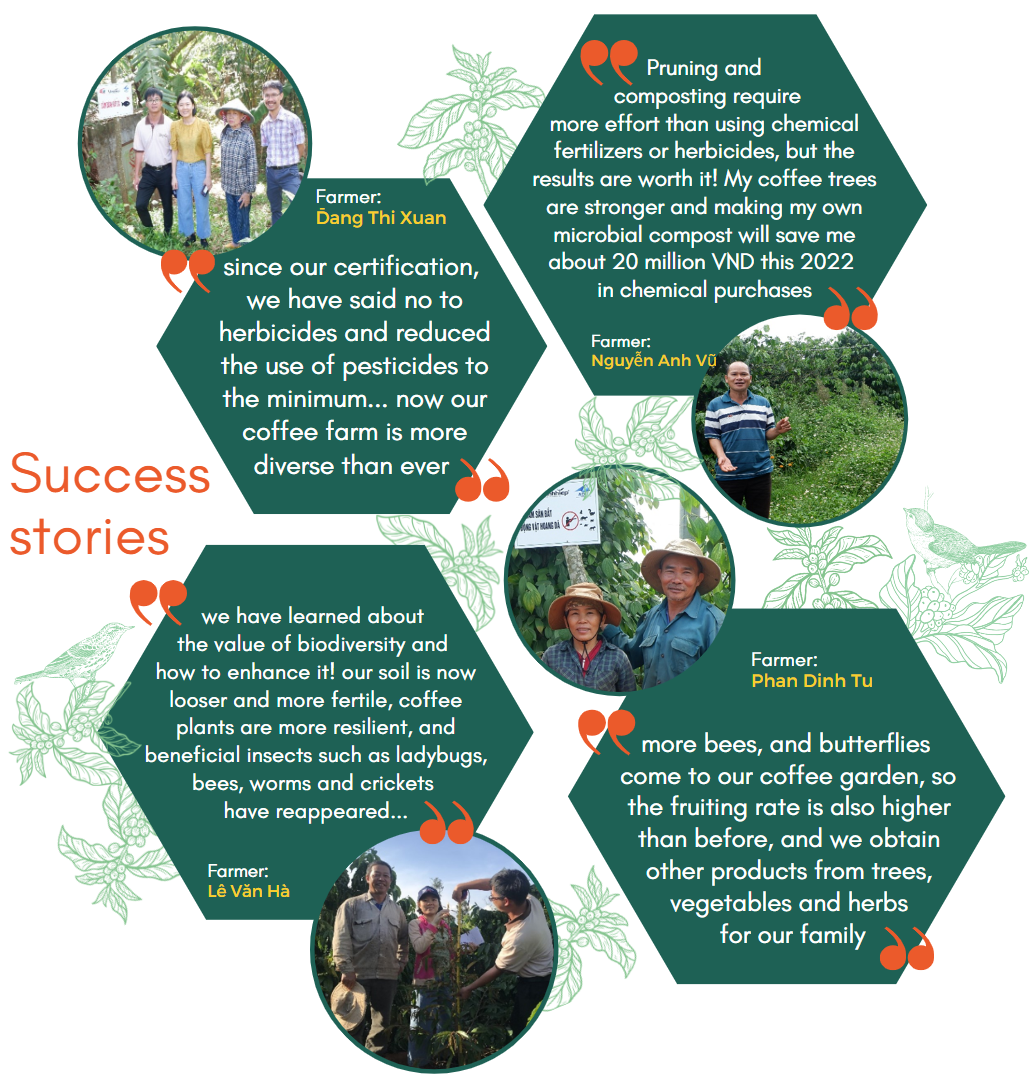
Project Partners
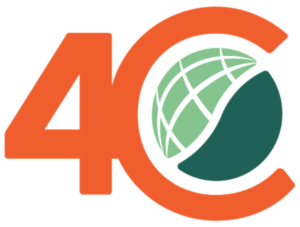 |
About 4C Services GmbH
4C is a leading sustainability certification scheme for the coffee industry. 4C certification focuses on good agricultural and management practices, including requirements on economic, social and environmental conditions for coffee production and processing in order to establish credible sustainable and transparent supply chains. |
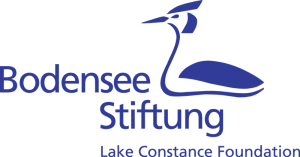 |
About Lake Constance Foundation
The Lake Constance Foundation is a private organisation for environmental protection and nature conservation in Germany. The project-oriented foundation works towards more sustainability and nature protection in the international Lake Constance area and beyond. The working areas are: Agriculture and Climate, Business and Biodiversity, Energy Transition, Nature and Lake Conservation. |
 |
Agriculture and Forestry Research & Development Center for Mountainous Region (ADC)
Agriculture and Forestry Research & Development Center for Mountainous Region (ADC) is a research and technology transfer organization working for the sustainable development of the people in the mountainous provinces of Vietnam. ADC is operating in various fields such as: agriculture, forestry, biodiversity, animal husbandry and fisheries development, natural resources management and conservation, socioeconomic development, poverty alleviation and policy advocacy and climate change. |
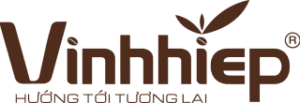 |
About Vinh Hiep Co. ltd
Vinh Hiep was established in 1999 working in the field of manufacturing, purchasing, processing and exporting coffee-pepper-roasted coffee. Vinh Hiep together with its supplying farms is certified under the 4C certification standard since 2013. Currently, Vinh Hiep manages around 1,400 – 4C certified farmers with a total area of 3,200 ha. After 20 years of operation in the field of purchasing and processing agricultural products, annual export of coffee and pepper reached 70,000 tons, export turnover reached over $ 150 million. |
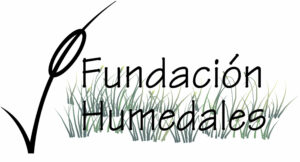 |
About Fundación Humedales
Fundación Humedales is a Colombian NGO founded in 2000, with the purpose of contributing to the conservation and management of aquatic ecosystems, based on an integral human and environmental approach. In compliance with this purpose, they develop projects on conservation, and participatory management of natural resources, environmental education programs, improvement of productive practices and on strengthening community associations while at the same time developing strategies of inclusion of gender and minority groups to scientific research. |